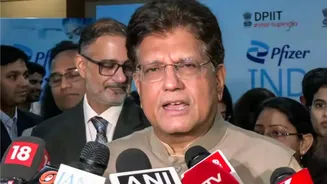Uncover 10 Signs You’re Not Eating Enough Nutrients & How to Fix It, Desi Style. Dive in for healthier habits!
Namaste, folks! In today’s fast-paced world, grabbing a quick bite often trumps a balanced
meal. We’re all hustling, trying to juggle work, family, and maybe squeezing in some time for ourselves. But amidst the chaos, are we truly nourishing our bodies?
Are we giving ourselves the fuel we need to thrive, or are we running on empty? The truth is, many of us are unknowingly missing out on essential nutrients, and that can slowly but surely take a toll on our health. This isn't about fancy diets or expensive supplements.
It's about understanding your body's signals and making simple, sustainable changes to your daily eating habits. So, put down that packet of chips (just for a minute!
), and let's dive into 10 telltale signs that your nutrient tank might be running low, and, more importantly, how to fix it the desi way – with simple, affordable, and delicious solutions from our own kitchens and gardens.
This article is your guide to identifying deficiencies and boosting your health, one bite at a time. Think of it as your personal user manual for a healthier & happier you!
Our bodies are incredibly intelligent machines, constantly communicating with us.
Often, these communications come in the form of subtle signs that we tend to ignore, attributing them to stress, lack of sleep, or just a bad day. But what many of us fail to realize is that these seemingly minor issues can be signals that something deeper is amiss – a lack of essential nutrients.
For instance, experiencing unexplained fatigue, even after sufficient sleep, could indicate an iron deficiency. Similarly, brittle nails or hair might be a sign that you are not consuming enough biotin or other vital minerals.
These aren't just cosmetic issues; they're indicators of underlying nutritional shortages. Ignoring these signs is like ignoring the warning lights on your car's dashboard – the problem might seem small now, but it could lead to bigger issues down the road.
The key is to tune into your body's language and understand what it's trying to tell you. So, let's examine these common signs and get your health back on track.
Feeling Tired All the Time (Even After Sleeping Enough): Constant fatigue is a common complaint, and while it can be caused by many things, nutrient deficiency is a big culprit. Iron deficiency anemia is especially common in women and vegetarians. Iron is crucial for carrying oxygen throughout your body, and without enough, your cells can't function properly, leaving you feeling drained. A lack of B vitamins, especially B12, can also lead to fatigue, as these vitamins play a vital role in energy production.
The Fix: Iron & B-Vitamin Boost: Load up on iron-rich vegetarian sources like spinach, lentils (dal), chickpeas (chole), and tofu. Pair these with vitamin C-rich foods like amla (Indian gooseberry) or lemon juice to enhance iron absorption.
For B vitamins, include whole grains, nuts, and seeds in your diet. Consider a B12 supplement if you are strictly vegetarian or have difficulty absorbing the vitamin. A simple glass of lassi made with curd can provide a good dose of B vitamins.
Hair Loss or Thinning: Losing a few strands of hair each day is normal, but excessive hair fall or noticeable thinning can be a sign that your body isn't getting the nutrients it needs to support healthy hair growth. Deficiencies in iron, zinc, biotin (vitamin B7), and protein are often linked to hair loss. These nutrients are essential for building the protein structures that make up your hair.
The Fix: Hair-Healthy Diet: Ensure you’re getting enough protein from pulses, legumes, and nuts. Incorporate zinc-rich foods like pumpkin seeds, sesame seeds (til), and sunflower seeds into your snacks or meals. Don't forget your greens!
Spinach and other leafy vegetables are packed with iron and other nutrients that promote hair growth. Consider adding a handful of soaked almonds to your daily routine.
Brittle Nails: Just like hair, nails can also reflect your nutritional status. Brittle nails that are prone to cracking or breaking can be a sign that you're lacking in several key nutrients, including biotin, iron, calcium, and magnesium. These minerals are essential for building strong and healthy nails.
The Fix: Strengthen From Within: Focus on incorporating calcium-rich foods like dairy products or fortified plant-based alternatives (if you consume them). Include magnesium-rich foods like dark leafy greens, nuts, and seeds in your diet. Add oats to your breakfast.
Ensure you're eating a varied diet that provides all the necessary building blocks for strong nails. Soak your nails in olive oil or almond oil a few times a week to moisturize them from the outside.
Mouth Ulcers or Cracks at the Corners of Your Mouth: These seemingly small irritations can be surprisingly painful and persistent. They can often indicate deficiencies in B vitamins (especially riboflavin and B12), iron, or zinc. These nutrients play a vital role in cell growth and repair, and a lack of them can lead to inflammation and skin problems like mouth ulcers.
The Fix: Soothe & Nourish: Increase your intake of B vitamins by eating whole grains, leafy greens, and curd. Eating lots of fresh fruits and vegetables will help. If the ulcers are severe or persistent, consider consulting a doctor to rule out any underlying medical conditions.
Gargling with lukewarm salt water can also help soothe the pain and promote healing.
Muscle Cramps: Those sudden, painful muscle cramps, especially in your legs, can be a sign of electrolyte imbalances, often caused by deficiencies in potassium, magnesium, or calcium. These electrolytes are crucial for proper muscle function and nerve transmission. When levels are low, your muscles can become prone to cramping and spasms.
The Fix: Electrolyte Balance: Eat potassium-rich foods like bananas. Add vegetables (palak) to your food that give you iron and magnesium. Drink plenty of water to stay hydrated and help transport electrolytes throughout your body.
In some cases, a magnesium supplement may be helpful, but consult with a doctor or registered dietitian before starting any new supplement regimen.
Poor Night Vision: Difficulty seeing at night, also known as night blindness, can be a sign of vitamin A deficiency. Vitamin A is essential for the function of the retina, the part of the eye that allows you to see in low light conditions. Without enough vitamin A, your vision can become impaired in darkness.
The Fix: Vitamin A Powerhouse: Incorporate foods rich in beta-carotene, which the body converts into vitamin A, into your diet. Good sources include carrots, sweet potatoes, and pumpkins. These vibrant vegetables are packed with antioxidants and other beneficial nutrients.

Make a carrot halwa (Indian sweet) for a delicious and nutritious treat.
Slow Wound Healing: Wounds that take longer than usual to heal can be a sign of deficiencies in vitamin C, zinc, or protein. These nutrients are all essential for tissue repair and collagen production, which are crucial for wound healing. Without enough of these nutrients, your body's ability to repair itself is impaired.
The Fix: Healing Foods: Increase your intake of vitamin C-rich foods like amla and other citrus fruits. Snack on nuts and seeds for a zinc boost. Ensure you're getting enough protein from pulses, legumes, and other vegetarian sources.
Consider adding a pinch of turmeric to your dishes, as it has anti-inflammatory properties that can promote wound healing.
Diarrhea or Constipation: Digestive issues like persistent diarrhea or constipation can be a sign of fiber deficiency. Fiber is essential for maintaining healthy bowel movements and supporting a healthy gut microbiome. Without enough fiber, your digestive system can become sluggish, leading to either constipation or diarrhea.
The Fix: Fiber Up!: Load up on fiber-rich foods like whole grains, fruits, vegetables, and legumes. Add a generous serving of salad to your lunch and dinner. Incorporate oats to your breakfast. Drink plenty of water to help fiber move through your digestive system.
In some cases, a fiber supplement may be helpful, but focus on getting fiber from whole foods first.
Difficulty in concentration Having a deficiency in vitamin B12, or even iron is very common especially with growing children an adults in many parts of the world. This can lead to lack of concentration which will be quite difficult to deal with
The Fix: Consuming food items with high amounts of vitamin B12 or iron can make your concentration better, if you are suspecting a strong degree of deficiency, consult a doctor and get a blood test to know better.
Weak immune system Vitamin C, D and Zinc is essential for building a strong immune system. Lack of a strong immune system can lead to falling sick frequently, or wound healing taking time.
The Fix: Consume food with high concentration of vitamins, and zinc. If you are suspecting a strong degree of deficiency, consult a doctor and get a blood test to know better, and intake the prescribed medication.
The Road to a Nutrient-Rich Life:
Remember, this is a journey, not a destination.
Start small, be consistent, and listen to your body. Focus on incorporating a variety of whole, unprocessed foods into your daily diet. Embrace the wisdom of our traditional Indian cuisine, which is rich in flavors and nutrients. Don't be afraid to experiment with new recipes and ingredients.
And, most importantly, consult with a doctor or registered dietitian for personalized advice and guidance. After all, your health is your wealth!
AI Generated Content. Glance/InMobi shall have no liability for the content












